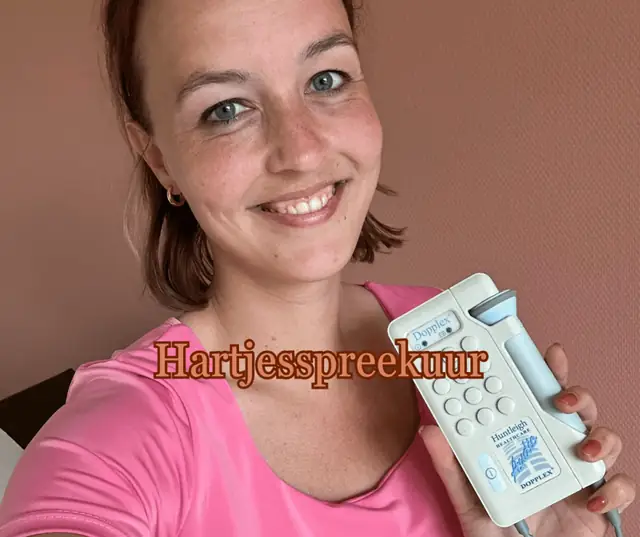Een warm welkom voor elk nieuw begin
- 5/5Cliëntbeoordeling
- 24/7Bereikbaar team
Waarom Verloskundigen PuurBegin in Kampen?
Met liefdevolle zorg en deskundigheid begeleiden we jullie door iedere fase.
-
Prenataal Screeningscentrum
Volledige zwangerschapszorg: Ook de 13 en 20 weken echo in eigen praktijk, door eigen echoscopisten. Direct de uitslag; ook in de avond en in het weekend.
-
Bevallen waar jij je goed voelt
Thuis of in het ziekenhuis: we staan naast je bij iedere keuze en situatie.
-
Avond- en weekend echospreekuren
Flexibel plannen? Onze eigen echopraktijk is regelmatig ook 's avonds en in het weekend geopend.
Ontmoet ons team
Maak kennis met de verloskundigen van PuurBegin en lees wie er voor jullie klaarstaan.
Inschrijven bij PuurBegin
Plan een afspraak via het formulier op de live site.
Bij Verloskundigen PuurBegin in Kampen ben je in goede handen.
Wij combineren verloskundige zorg, echo’s en prenatale screening onder 1 dak. Met eigen echoscopisten, korte lijnen en een team dat jouw situatie écht kent.
Zorg vanuit het hart – niet commercieel
Voor ons draait verloskundige zorg niet om commercie, maar om mensen. Wij vinden dat elke aanstaande ouder warme begeleiding, rust en mooie momenten verdient, ongeacht budget. Daarom bieden we bewust meerdere diensten en extra’s kosteloos aan.
Een mooi voorbeeld daarvan zijn onze kosteloze pretecho's en 3D/4D pretecho: omdat zo’n moment zoveel blijdschap, verbinding en vertrouwen kan geven in de zwangerschap, willen we niet dat dit afhankelijk is van je portemonnee. Wij zijn geen commerciële partij en dat zullen we ook nooit worden.
Kleinschalig team, vertrouwde gezichten
Je wordt begeleid door een vast en kleinschalig team van maximaal 5 verloskundigen. Daardoor zie je tijdens je controles vrijwel altijd bekende gezichten en heb je iedereen al ontmoet voor je gaat bevallen. Wel zo prettig.
Altijd direct contact (24/7)
Twijfel je ergens over of wil je gewoon even overleggen? Je mag ons altijd bellen. Je krijgt bij ons direct de verloskundige aan de lijn (geen assistente) en we zijn 24 uur per dag bereikbaar. Zo hoef je nooit twee keer je verhaal te doen en ben je snel geholpen.
Tijd en aandacht voor jouw zwangerschap
We nemen de tijd voor jou. Daarom zijn onze controles standaard extra lang (20 minuten) en sommige afspraken 30–60 minuten. En als je behoefte hebt aan extra geruststelling, dan is er ruimte voor een extra moment.
Op de pagina, Waarom Verloskundigen PuurBegin vind je meer informatie.
Samen sterk met VSV Zwolle
We werken samen binnen het Verloskundig Samenwerkingsverband Zwolle (VSV Zwolle) Isala Ziekenhuis & Verloskundige Samenwerkingsverband Zorg die Bevalt, St Jansdal Ziekenhuis. Daardoor combineren we persoonlijke zorg in Kampen met korte lijnen richting medische expertise wanneer dat nodig is - thuis of in het ziekenhuis.
Ervaringen van gezinnen
Lees wat andere ouders vertellen over de begeleiding bij Verloskundigen PuurBegin.
Wat een warm en professioneel team! Ik voelde me gehoord en gesteund, ook bij onverwachte wendingen.
Tijdens de bevalling gaf Anita precies de rust en vertrouwen die ik nodig had. Ook in de kraamweek bleven ze betrokken.
De avondspreekuren waren ideaal voor ons. Elke afspraak was vriendelijk en informatief. Echt een aanrader!
Veelgestelde vragen
Wanneer kan ik mij inschrijven?
Vanaf het moment dat je een positieve zwangerschapstest hebt mag je je inschrijven. Je krijgt binnen 24 uur een reactie en plannen direct het eerste gesprek.
Hoe bereid ik me voor op de bevalling?
Wij bieden voorlichtingsavonden, een digitaal informatiepakket en helpen je bij het maken van een geboorteplan dat bij jullie past.
Kan ik kiezen tussen thuis of ziekenhuis bevallen?
Ja, die keuze is aan jou. We bespreken alle scenario's tijdens het traject zodat je weet wat mogelijk is en wat bij je past.
Je bereikt ons tijdens kantooruren op 085 40 19 095 of via info@verloskundigenpuurbegin.nl. Spoed? Bel dan 06 53 65 91 91.
Adres:
Orkestlaan 148
8265RC Kampen
Wij zijn 24 uur per dag bereikbaar voor spoed.
Klaar om je aan te melden?
Wij ontvangen je graag bij ons op de praktijk of via een telefonische kennismaking. We bespreken jouw vragen en wensen, zodat je met een goed gevoel verder kunt.
Laatste blogs
- 8 dingen over snoepgroenten en PFAS-pesticiden 8 december 2025
- Kan ik seks hebben tijdens de zwangerschap? 22 oktober 2025
- Alles over Postpartum Schildklierproblemen: Wat nu? 21 oktober 2025





